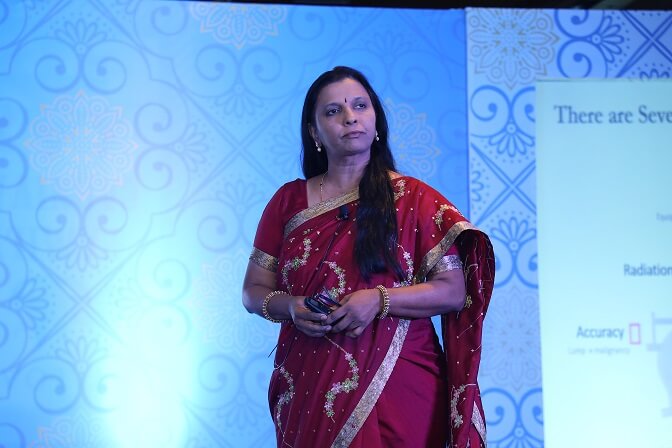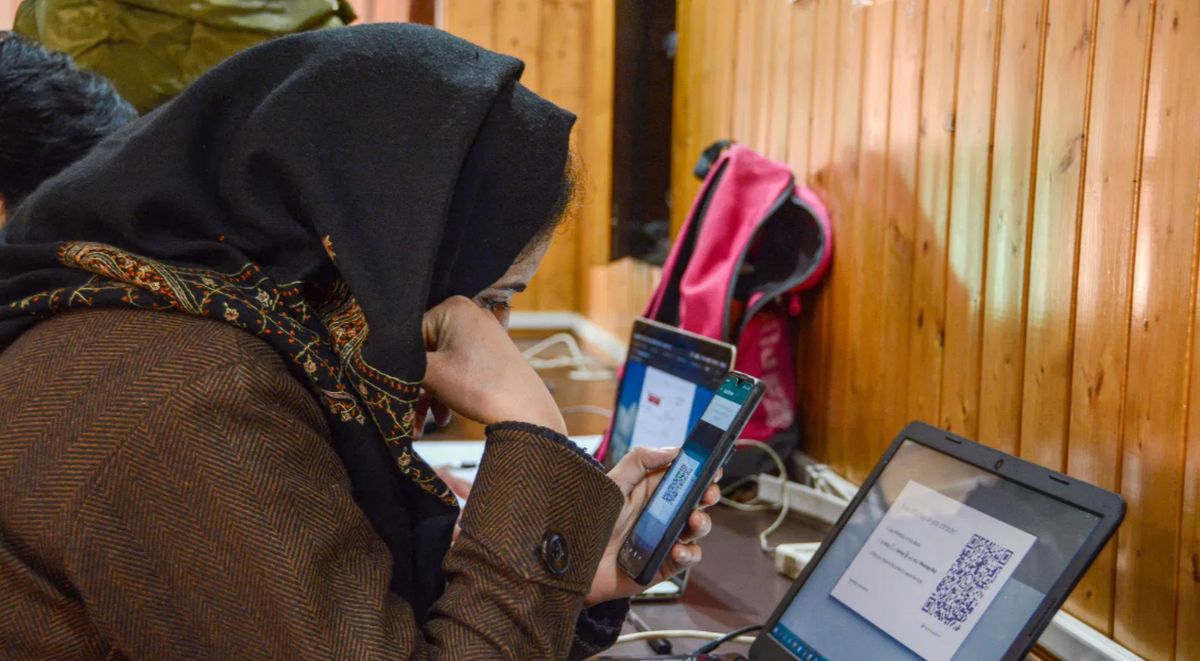Posted by Damayanti Datta
The year was 1991. India was about to launch its supercomputer, besting many developed countries in the race. A team of brilliant scientists, under Vijay Bhatkar, were hard at work at the Centre for Development of Advanced Computing (C-DAC). Prime Minister Rajiv Gandhi was watching keenly.
A young girl, just out of college, had joined the research team at C-DAC. She was put in the integration team but got bored within a year and wanted to quit. When asked why, she replied honestly, “Because, I can do more.” She was then inducted into the research wing.
Geetha Manjunath has always been clear about what she wanted to do. And in nearly every step of her career, she has done exactly that. “I learnt that day that you have to let people know what you want and what you can offer,” said the innovator, inventor and, now, entrepreneur. “Women tend to undermine their capabilities. We settle for less and we accept whatever task is given to us.”
As Founder and CEO of Niramai Health Analytix, she wants to stop the needless loss of life from breast cancer — over 96,000 a year in India. She leads the small but growing crew of her four-year-old health-tech startup to bring about breakthrough solutions towards that end using Artificial Intelligence (AI), Machine Learning (ML) and thermal Infrared (IR) temperature maps of the human body in diseased states. Niramai now has over 50 installations at hospitals and diagnostic centres across 10 Indian cities.
Also read: How The Mumkin App Is Revolutionising Feminist Technology
She was a child who dreamt of computers, the little girl who took things apart to see how they worked, the curious teen who fixed the radio at home, the star student who defied the pressure of relatives to be a doctor and opted for engineering, the successful technologist who started a PhD in AI mid-career, the bereaved kin who wanted to heal by solving breast cancer, the daughter who always kept her father’s gentle words of assurance in her heart: “Do what you love.”
As a woman in STEM, she has often been the only woman in the room: one of just two girls doing computer science masters at Indian Institute of Sciences (IISc), Bengaluru; only woman in boardroom meetings during her 25 years of career at C-DAC, Hewlett-Packard Labs and Xerox Research Centre India; as the sole woman researcher representing India among her company’s international teams. “You have to think of something bigger than yourself,” she said, “have confidence in your intent and then move on.”
Manjunath has received several awards including Accenture Vahini Innovator of the Year Award from Economic Times and Women Entrepreneur of the Year 2020 by BioSpectrum India.
The Trailblazer
The signature product of Niramai, Thermalytix, promises to be a game-changer. In a minutes-long process that is pain-free, radiation-free, touch-free, and “more accurate than mammography,” it analyses about four lakh temperature points, a chore that is humanly impossible. “Our strength lies in the accuracy of the AI model,” she said. “We collaborate with over 50 hospitals and diagnostic centres to provide this test, and have collected very high-quality data.”
An inventor with 17 patents, a PhD in AI from IISc and an MBA from the Kellogg’s School of Management, Chicago—Manjunath combines creativity, advanced technological skills and astute business knowledge—the key traits of a successful entrepreneur. And Niramai is getting noticed. The year 2020 has been prolific in awards and recognition: from the BioSpectrum Women Entrepreneur of 2020, the Economic Times Accenture Innovator of the Year 2020, the 30 Most Powerful Women Award by Business Today—for her product, for the strategic steps taken, for the ability to raise funds, that make the company stand out.
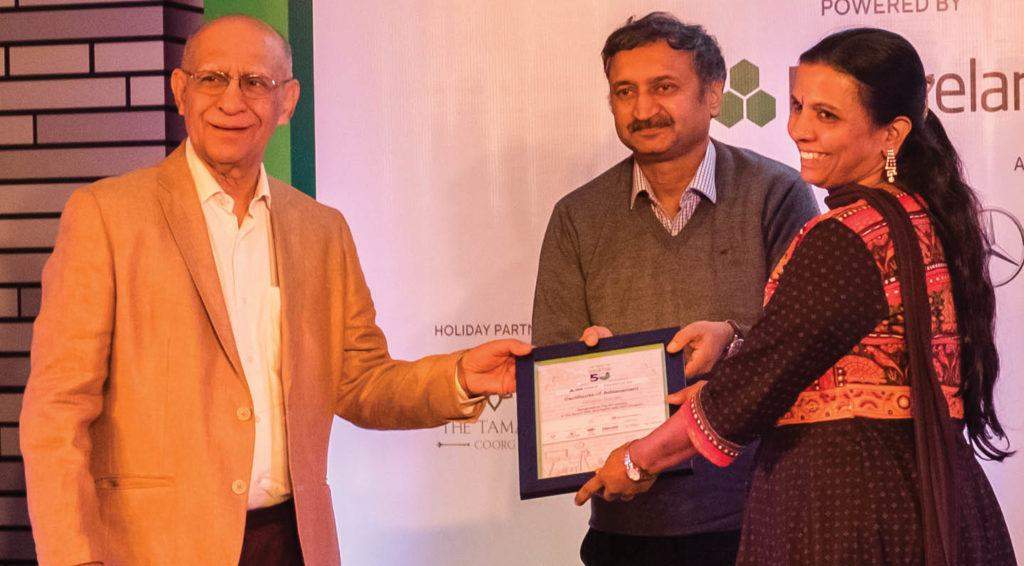
Her favourite recognition, however, came in 2019. “Meet India’s only startup among CB Insights’ 100 most promising AI startups,” headlines rolled off the presses. The go-to data-led research and intelligence platform to understand the latest in technology and startups had put Niramai as the only start-up from India on the global map that year. “Niramai is the only company in the world using AI-based thermal image processing and machine learning algorithms for reliable and accurate breast cancer screening and has benefited over 36,000 women so far,” she pointed out.
For her, it has been a journey full of learning, discovery, surprise, serendipity and the dream of saving many lives: one woman in the world is diagnosed with breast cancer every four minutes. And one woman dies of breast cancer every 13 minutes. Only 60 per cent women treated for breast cancer survive five years post-treatment in India, compared to 89 per cent in the US, according to a Cancer India Statistics.
Screening For COVID-19
The pandemic revealed the versatility of the technology Manjunath and her team created. In March 2020, even as the coronavirus outbreak shuttered hospitals and offices, forcing people to work remotely, her team rose to the challenge. They put their heads together to crack the toughest of questions: “Can we address this challenge with our own strength?” The upshot was an array of portable solutions, helping thousands of people, physicians and hospitals with their accuracy in the last one year.
The first was a better fever test. The thermal cameras used at airports, hospitals and other public places just measure the temperature of people and are prone to manual errors and are time consuming, she explained. The Niramai solution was automatic and could also detect respiratory problems. “We screened people as they walked by and generated the data – how many people passed by, what body temperature they had and raised the alarm, so action could be taken.”
With people staying away from hospitals, next came home breast health screening services for women who were at high risk of breast cancer due to family history, breast cancer survivors who needed frequent monitoring, those who needed a screening but were unable to visit a healthcare facility due to Covid. “We found that women were very open to these screenings, because the tests were done at home,” said Manjunath.
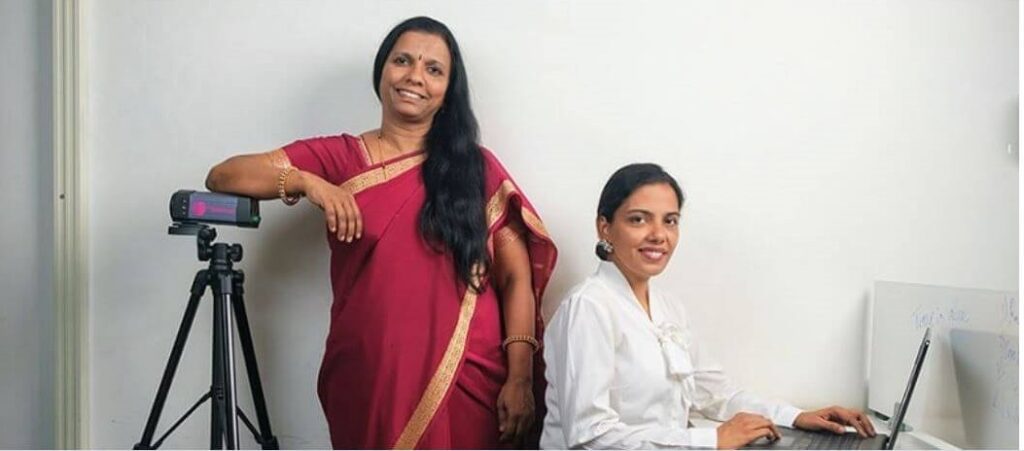
Along with the doctors of the WhatsApp-based ‘Cardiology at Doorstep’ in Karnataka and the IISc, Manjunath collaborated to create the ‘Covid SWIFT’ (Simple WhatsApp Image interpretation at Finger-Tips) Rapid AI Solutions. The goal was to help doctors and patients in remote villages and talukas. Without speedy access to Covid RT-PCR tests, doctors were unable to start treatment and many succumbed to the disease before help arrived.
In July 2020, Covid SWIFT was launched free of cost in Karnataka. A doctor would take an X-Ray of a patient’s chest and WhatsApp it over a mobile phone. Based on the analysis they would start treatment, confirming it with RT-PCR test results as they came a few days later. “It helped in early detection and better immediate treatment,” she said. “Over 1,000 people benefitted and more than 500 doctors used our solution and appreciated it.”
A Woman In Science
“I have mentored many young women and enjoyed it. They are all strong ladies,” said Manjunath, as she shared her word of advice for women in science and technology today. If you are the only woman in the room, so what? Just ignore it and give your best. “I have never noticed any conscious attempt to put me down as a woman. If you don’t see, you can do your best.”
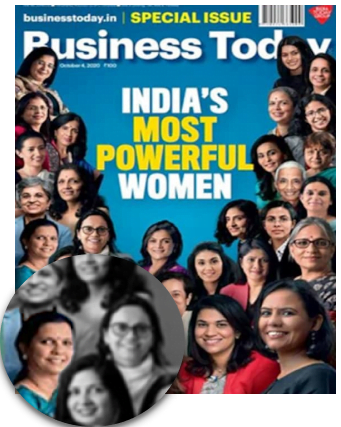
“In performance assessments, don’t be shy. Feel free to boast about what you have done during the year. If you are modest about your work, your manager won’t know what you have done. Don’t expect them to know if you don’t tell them.”
“Just remember, there are very few women in science. We need more. So if you like maths, science or technology, just don’t give up.”
Also read: Artificial Reproductive Technologies: Reimagining The Notions Of Parenthood
Damayanti specialises in storytelling that is rooted in research. She has travelled widely and reported from locations as diverse as hospitals, courts, science labs, police stations and tribal homes.
This article is a part of 101Reporters’ Rukhmabai Fellowship Stories About Women In Stem and has been re-published here with consent. In this series, 101Reporters cover the inspiring work of Indian women in the fields of STEM.
